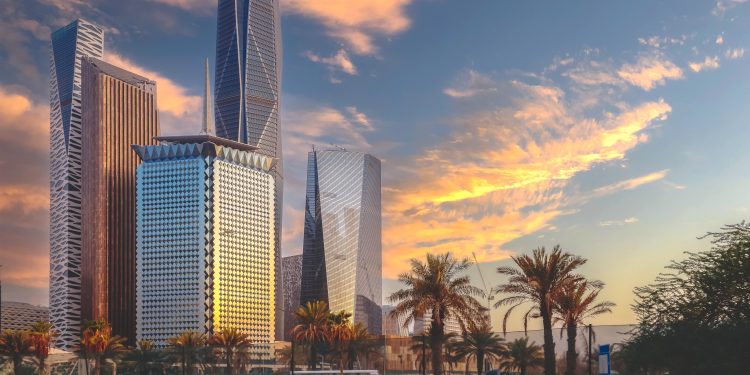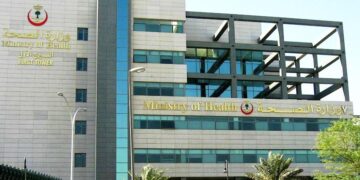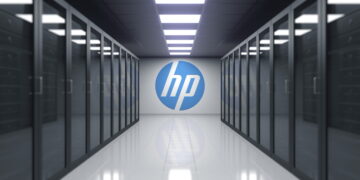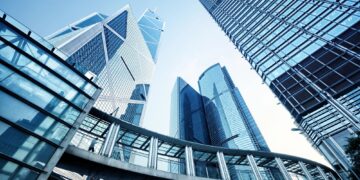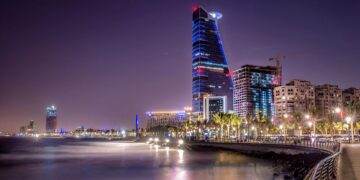Saudi Arabia has showcased a resilient economic performance, with an impressive average growth rate of 4 percent over the past seven years. Bolstered by a forward-thinking approach and a conducive business climate, the Kingdom’s trajectory aligns with its transformative Vision 2030, which aims to diversify the economy away from oil dependency and create a dynamic society.
Attracting foreign direct investment (FDI) and forging agreements with neighboring states, Saudi Arabia has become a paragon of openness in business. Economist and policy advisor Mahmoud Khairy conveyed to Arab News that the Kingdom is actively enhancing trade ties and easing commercial barriers as it implements its Vision 2030 strategy.
This strategic blueprint encompasses the development of logistics hubs and free trade zones, which, in conjunction with digital infrastructure investments and e-commerce advancements, position Saudi Arabia as a modernized nexus in international commerce.
Khairys remarks are mirrored by Saudi economist Talat Hafiz, who emphasized the criticality of a conducive business environment in spurring economic growth and attracting FDI. Saudi Arabia has not only improved its ease of doing business but also its digital competitiveness, as evidenced by its rankings in the World Bank and IMD indexes.
When compared to many Western countries, Saudi Arabia’s corporate tax rates are notably lower, with certain industries and regions even benefiting from tax exemptions or reduced rates.
Mahmoud Khairy, Economist and policy adviser
Positioned at the crossroads of Europe, Asia, and Africa, Saudi Arabia’s strategic geographic location serves as an efficient gateway to a vast consumer market, bolstered by state investment in modern cargo-handling technology at major ports like King Abdulaziz Port and King Abdullah Port.
Hafiz pointed out the Kingdom’s robust seaport network, consisting of 290 berths, which not only drives national growth but also elevates Saudi Arabia’s regional and international stature. Enhanced transportation networks, encompassing roads, railways, and airports, further streamline the movement of goods and bolster supply chain efficiency.
Saudi Arabia’s appeal to investors and entrepreneurs is augmented by its youth-oriented, tech-savvy demographic and government initiatives offering low tax rates and streamlined business regulations. These incentives, along with ongoing infrastructure projects like NEOM and Red Sea Global, create a fertile ground for innovation and entrepreneurship.
The Kingdom’s commitment to technology and innovation is evident in its investments in AI and machine learning. Under the stewardship of Crown Prince Mohammed bin Salman, Saudi Arabia is propelling industries into the digital era, with generative AI technologies like OpenAI’s ChatGPT and Google’s BERT playing transformative roles in supply chain and procurement sectors.
The National Industrial Strategy aims to not only increase the number of factories but also to enhance technological capabilities, aligning with Vision 2030’s objectives of economic diversification and sustainability.
With a blend of youthful energy and a commitment to education and technological progress, Saudi Arabia is positioning itself as a hub of talent and innovation. As it continues to invest in programs that prepare its youth for emerging job markets, the Kingdom is leveraging cutting-edge technologies to revolutionize its supply chain and empower future generations.
